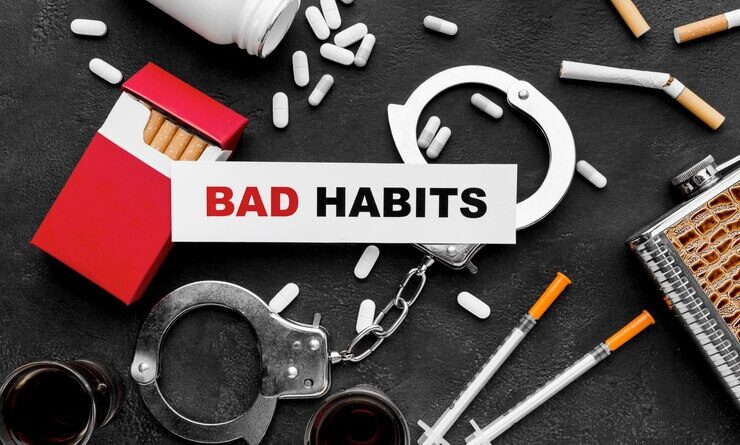How do you break bad habits?
How do you break bad habits? We’ve all experienced the rugged pattern of persistent vices that hinder self-awareness and prosperity. Whether your vices are smoking, eating low-quality food, lingering, or investing a lot of energy before a screen, breaking them can be a difficult but compensating process. This blog is for you, assuming that you wish to become mindful of those negative ways of behaving, face them, and ultimately kick them.
How do you break bad habits?
1. Knowing oneself
Building mindfulness is a fundamental initial phase in defeating unfortunate things to do. Perceive the impact your propensities have on your life by pondering them. Investigate the impacts of your activities and wonder why you do them. Effective propensity change starts with distinguishing and tending to the hidden causes.
2. Develop Specific and Doable Objectives
Make sure your objectives are both specific and attainable after you’ve decided on the habits you want to change. Dividing bigger objectives into more manageable chunks is a good strategy. This does double duty: it makes the process more manageable and it lets you celebrate little wins as you go, which reinforces good behavior.
3. Install New, Not Remove
It’s not easy to break a habit for good without picking up a new one. Get out of the rut you’re in by finding healthier alternatives to smoking. When trying to kick the habit of smoking, for instance, try substituting a healthy activity, like chewing gum or going for a brief walk, for the act of smoking itself.
4. Develop a Support System and Understand Triggers
Occasions, sentiments, or tensions could act as impetuses for specific ways of behaving. Figure out what disturbs you and concoct an answer for it. Furthermore, encircle yourself with steady other people who will consider you responsible and support you, like family, companions, or colleagues.
5. Make Time for Meditation and Mindfulness
Regular application of mindfulness and meditation techniques can assist in breaking negative habits. Being more self-aware can help you restrain your desires and act rationally rather than irrationally. Throughout the day, engaging in mindfulness practices is one approach to developing control over one’s conduct.
6. Keep Tabs on Your Development
Using habit-tracking applications or keeping a notepad will allow you to monitor your progress. Monitoring your development enables you to view the larger picture, see patterns, and maintain motivation. No matter how big or small, you should always recognize and appreciate your accomplishments and learn from your mistakes.
7. Get Expert Advice If Necessary
It tends to be important to set proficient help up to end your propensities on the off chance that they are adversely affecting your physical or emotional wellness. A medical services proficient, specialist, or guide who can help you in coming up with a methodology that works for you may be somebody you need to think about seeing.
8. Embrace the concept of “growth mindset.”
Have a growth mentality going into it, which is the conviction that your skills and intelligence can be honed through perseverance and focus. Realize that obstacles are inherent to the path and see them for what they are: chances to learn and improve.
Final Thoughts
In conclusion, How do break bad habits? Surrendering undesirable propensities is an extraordinary cycle that requires perseverance, reflection, and commitment. You can engage yourself to impact enduring, positive change by investigating the basic causes, defining practical objectives, and establishing a steady climate. You should surrender your negative propensities on the off chance that you wish to lead a more joyful, really satisfying life.



Leave a Reply